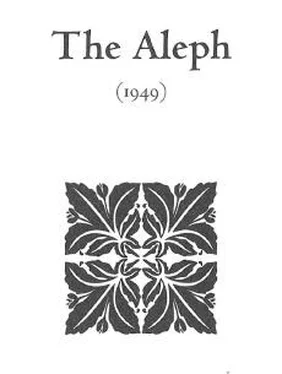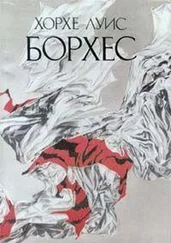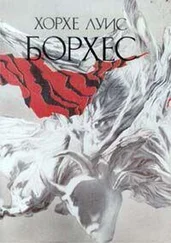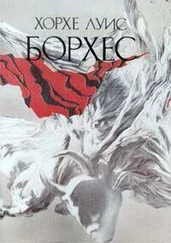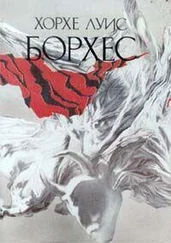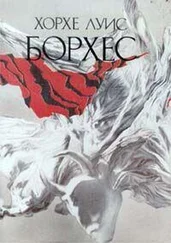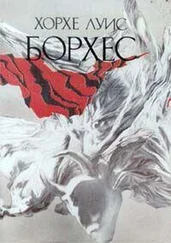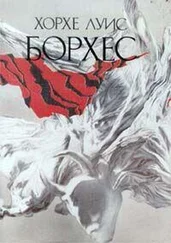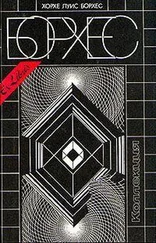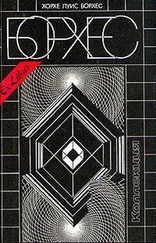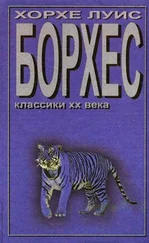Хорхе Борхес - Collected Fictions
Здесь есть возможность читать онлайн «Хорхе Борхес - Collected Fictions» весь текст электронной книги совершенно бесплатно (целиком полную версию без сокращений). В некоторых случаях можно слушать аудио, скачать через торрент в формате fb2 и присутствует краткое содержание. Год выпуска: 1999, ISBN: 1999, Издательство: Penguin (UK), Жанр: Старинная литература, на английском языке. Описание произведения, (предисловие) а так же отзывы посетителей доступны на портале библиотеки ЛибКат.
- Название:Collected Fictions
- Автор:
- Издательство:Penguin (UK)
- Жанр:
- Год:1999
- ISBN:9780140286809
- Рейтинг книги:5 / 5. Голосов: 1
-
Избранное:Добавить в избранное
- Отзывы:
-
Ваша оценка:
- 100
- 1
- 2
- 3
- 4
- 5
Collected Fictions: краткое содержание, описание и аннотация
Предлагаем к чтению аннотацию, описание, краткое содержание или предисловие (зависит от того, что написал сам автор книги «Collected Fictions»). Если вы не нашли необходимую информацию о книге — напишите в комментариях, мы постараемся отыскать её.
Collected Fictions — читать онлайн бесплатно полную книгу (весь текст) целиком
Ниже представлен текст книги, разбитый по страницам. Система сохранения места последней прочитанной страницы, позволяет с удобством читать онлайн бесплатно книгу «Collected Fictions», без необходимости каждый раз заново искать на чём Вы остановились. Поставьте закладку, и сможете в любой момент перейти на страницу, на которой закончили чтение.
Интервал:
Закладка:
* Chacarita: One of the two enormous cemeteries in Buenos Aires; the other is Recoleta. A modern guidebook* has this to say about the cemeteries of Buenos Aires: Life and Death in Recoleta & Chacarita: Death is an equalizer, except in Buenos Aires. When the arteries harden after decades of dining at Au Bec Fin and finishing up with coffee and dessert at La Bielaor Café de la Paix, the wealthy and powerful of Buenos Aires move ceremoniously across the street to Recoleta Cemetery, joining their forefathers in a place they have visited religiously all their lives-----According to Argentine novelist Tomás Eloy Martínez, Argentines are "cadaver cultists" who honor their most revered national figures not on the date of their birth but of their death.... Nowhere is this obsession with mortality and corruption more evident than in Recoleta, where generations of the elite repose in the grandeur of ostentatious mausoleums. It is a common saying and only a slight exaggeration that "it is cheaper to live extravagantly all your life than to be buried inRecoleta."Traditionally, money is not enough: you must have a surname like Anchorena, Alvear, Aramburu, Avellaneda, Mitre, Martínez de Hoz, or Sarmiento.... Although more democratic in conception, Chacaritahas many tombs which match the finest in Recoleta. One of the most visited belongs to Carlos Gardel, the famous tango singer. (* Argentina, Uruguayé-Paraguay, Wayne Bernhardson and Maria Massolo, Hawthorne, Vic, Australia; Berkeley, CA, USA; and London, UK: Lonely Planet Publications [Travel Survival Kit], 1992)
* Compendia of Dr. Acevedo Díaz: Eduardo Acevedo Díaz (1882-1959) won the Premio Nacional for his novel Cancha Larga; JLB's entry that year, The Garden of Forking Paths, won second prize.
* Pedro Henriquez Ureña: Henriquez Ureña (1884-1946), originally from the Dominican Republic, lived for years in Buenos Aires and was an early contributor to Sur, the magazine that Victoria Ocampo founded and that JLB assiduously worked on. It was through Henriquez Ureña, who had lived for a time in Mexico City, that JLB met another close friend, the Mexican humanist Alfonso Reyes. Henriquez Ureña and JLB collaborated on the Antología de la literatura argentina (1937).
Notes to The Maker
Foreword
* Leopoldo Lugones: Lugones (1874-1938) was probably Argentina's leading poet in the second to fourth decades of this century; he was influenced by Spanish modernismo and by the French Symbolists. To a degree he represented to the young Turks of Argentine poetry the ancien régime; therefore he was often attacked, and often tastelessly so. Early on, JLB joined in these gibes at Lugones, though clearly Borge salso recognized Lugones' skills and talents as a poet. Rodriguez Monegal (pp. 197-198) speculates that JLB had mixed feelings about Lugones, especially in his person, but suggests that respect for Lugones as a poet no doubt prevailed, especially as JLB matured. Monegal quotes Borges (quoted by Fernández Moreno) as follows: Lugones was "a solitary and dogmatic man, a man who did not open up easily.... Conversation was difficult with him because he [would] bring everything to a close with a phrase which was literally a period.... Then you had to begin again, to find another subject.... And that subject was also dissolved with a period.... His kind of conversation was brilliant but tiresome. And many times his assertions had nothing to do with what he really believed; he just had to say something extraordinary.... What he wanted was to control the conversation. Everything he said was final. And... we had a great respect for him."(Fernández Moreno [1967], pp. 10-11, in Rodriguez Monegal, p. 197; ellipses in Rodriguez Monegal.) Another problem with Lugones was his partiality to military governments, his proto- and then unfeigned fascism; obviously this did not endear him to many, more liberal, thinkers. In this introduction JLB seems to recognize that while he and his friends were experimenting with a "new" poetics in the first decades of the century, Lugones kept on his amiable way, and to admit that later he, JLB, had put aside some of the more shocking and radical of his notions of poetry in favor of a cleaner, less "poetic" poetry, which Lugones would probably have recognized as much closer to his own. So the "son" comes to see that he has come to resemble the resented "father" (no Freudian implications intended; genetics only; no political implications intended, either; Borges hated military governments and hated fascism and Nazism).
* The Maker: The Spanish title of this "heterogeneous" volume of prose and poetry (only the prose is included in this volume) is El hacedor, and hacedor is a troublesome word for a translator into English. JLB seems to be thinking of the Greek word poeta, which means "maker," since a "true and literal" translation of poeta into Spanish would indeed be hacedor. Yet hacedor is in this translator's view, and in the view of all those native speakers he has consulted, a most uncommon word. It is not used in Spanish for "poet" but instead makes one think of someone who makes things with his hands, a kind of artisan, perhaps, or perhaps even a linkerer. The English word maker is perhaps strange too, yet it exists; however, it is used in English (in such phrases as "he went to meet his Maker" and the brand name Maker's Mark) in a way that dissuades one from seizing upon it immediately as the "perfect" translation for hacedor. (The Spanish word hacedor would never be used for "God," for instance.) Eliot Weinberger has suggested to this translator, quite rightly, perhaps, that JLB had in mind the Scots word makir, which means "poet." But there are other cases: Eliot's dedication of The Waste Land to Ezra Pound, taken from Dante— il miglior fabbro, where fabbro has exactly the same range as hacedor. Several considerations seem to militate in favor of the translation "artificer": first, the sense of someone's making something with his hands, or perhaps "sculptor," for one of JLB's favorite metaphors for poetry was at one time sculpture; second, the fact that the second "volume" in the volume Fictions is clearly titled Artifices-, third, the overlap between art and craft or artisanry that is implied in the word, as in the first story in this volume. But a translational decision of this kind is never easy and perhaps never "done"; one wishes one could call the volume II fabbro, or Poeta, or leave it El hacedor. The previous English translation of this volume in fact opted for Dreamtigers. Yet sometimes a translator is spared this anguish (if he or she finds the key to the puzzle in time to forestall it); in this case there is an easy solution. I quote from Emir Rodriguez Monegal's Jorge Luis Borges: A Literary Biography, p. 438:"Borges was sixty when the ninth volume of his complete works came out-----For the new book he had thought up the title in English: The Maker, and had translated it into Spanish as El hacedor, but when the book came out in the United States the American translator preferred to avoid the theological implications and used instead the tide of one of the pieces: Dreamtigers so a translation problem becomes a problem created in the first place by a translation! (Thanks to Eliot Weinberger for coming across this reference in time and bringing it to my attention.)
Dreamtigers
* Title: The title of this story appears in italics because JLB used the English nonce word in the Spanish original.
* That spotted "tiger": While there are many indigenous words for the predatory cats of South America—puma, jaguar, etc.—that have been adopted into Spanish, Peninsular Spanish called these cats tigers. (One should recall that Columbus simply had no words for the myriad new things in this New World, so if an indigenous word did not "catch on" immediately, one was left with a European word for the thing: hence "Indians"!) Here, then, JLB is comparing the so-called tiger of the Southern Cone with its Asian counterpart, always a more intriguing animal for him. Cf., for instance, "Blue Tigers" in the volume titled Shakespeare's Memory.
Читать дальшеИнтервал:
Закладка:
Похожие книги на «Collected Fictions»
Представляем Вашему вниманию похожие книги на «Collected Fictions» списком для выбора. Мы отобрали схожую по названию и смыслу литературу в надежде предоставить читателям больше вариантов отыскать новые, интересные, ещё непрочитанные произведения.
Обсуждение, отзывы о книге «Collected Fictions» и просто собственные мнения читателей. Оставьте ваши комментарии, напишите, что Вы думаете о произведении, его смысле или главных героях. Укажите что конкретно понравилось, а что нет, и почему Вы так считаете.
